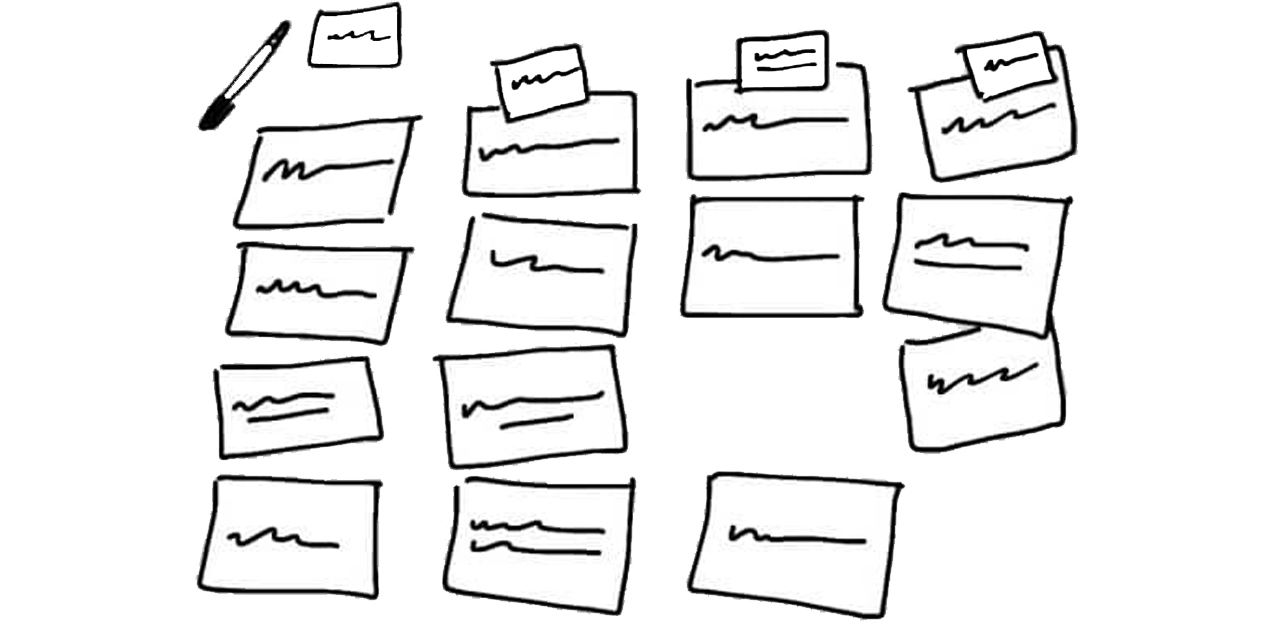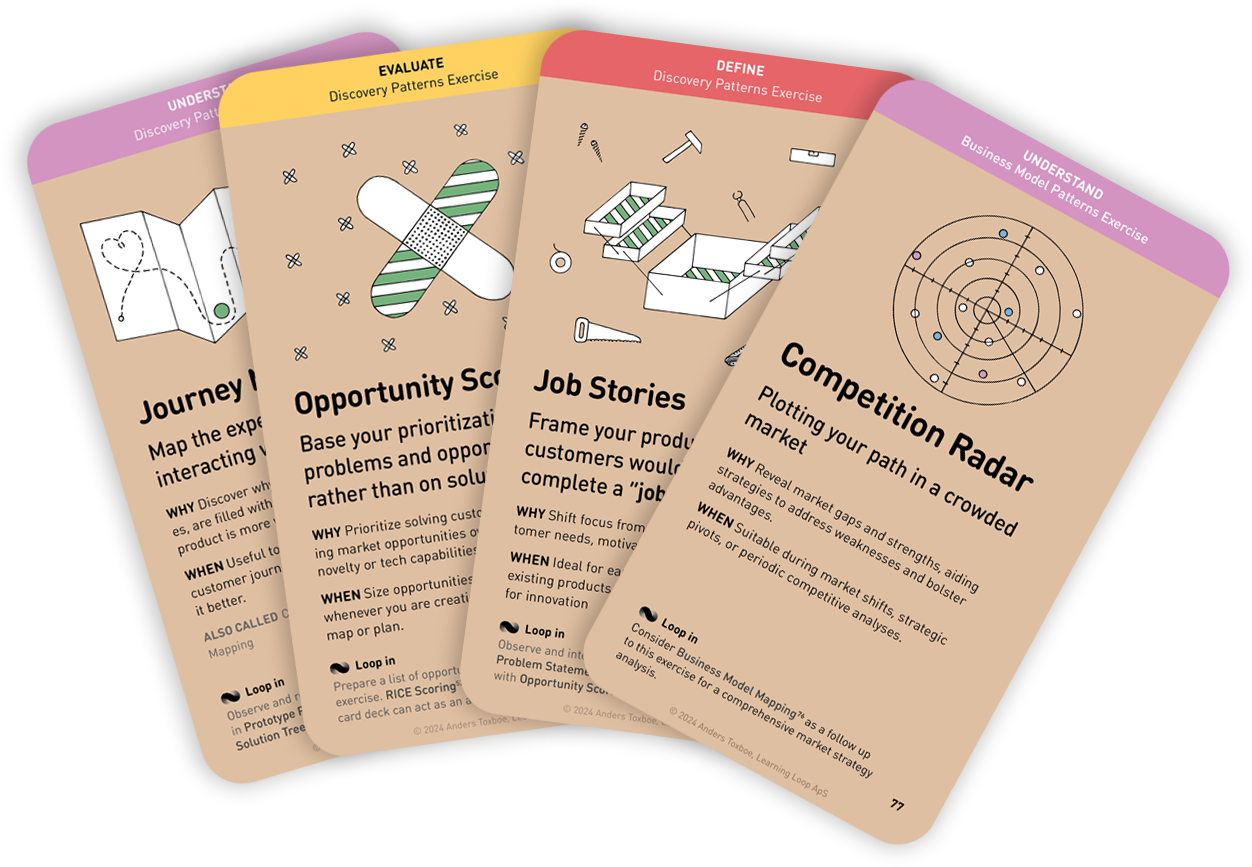
Why: Create information architectures that align with the mental models, thought processes, and preferences of your users
When: Use to uncover patterns to design information architectures, navigation systems, and content organization strategies
Instructions for running this play
Prepare a list of groupable items to be sorted. Each item should be on the same conceptual level and similar enough for participants to be able to compare and sort them into groups. Carrot and Tomato compare better than Vegetable and Carrot.
Sort the items using one of these approaches:
- Open Card Sorting: Let participants sort cards into categories and let them label the categories themselves. This generative approach is similar to Affinity Mapping.
- Closed Card Sorting: Let participants sort cards into predefined categories.
- Hybrid Card Sorting. Let participants sort cards into predefined categories, but also allow them to create categories of their own as well.
Tips to perfect this play
Master and adapt the play to fit your context and needs.
Tip
Aim for between 30 and 60 cards. Limiting to 60 cards will force you to only include the most relevant cards and let participants be more likely to complete the exercise.
Tip: Concepts, not usability
Card sorting tests concepts, not usability. You will not use the cards in the user interface of your product, so do not worry too much about the usability of each card.
Tip: Open or closed?
Consider open and closed methods variations: open card sorting allows participants to create their own categories, while closed card sorting provides predefined categories.
A collection of workshop exercises that will help you ditch dull meetings and facilitate with confidence. It will help you master the design process and have more productive time with your team. The card deck will be ready for purchase in the end of 2026 and is now undergoing rigorous testing.
Reserve your deck!